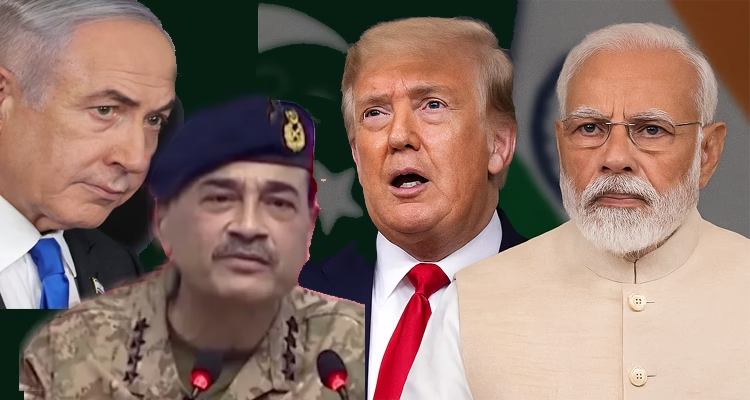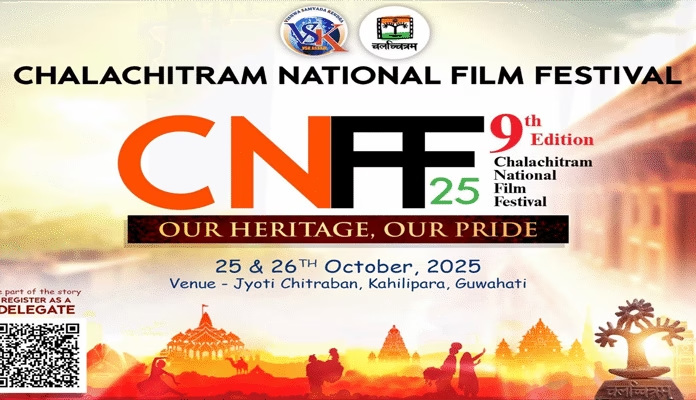
…Backs Israel, Embraces Pakistan’s Munir, Tells India to Show ‘Restraint’
 by Ashis Sinha
by Ashis Sinha
In a geopolitical twist raising eyebrows in New Delhi, the United States appears to be treading a controversial path — offering firm backing to Israel’s anti-terror operations, extending a red-carpet welcome to Pakistan’s Army Chief General Asim Munir, and simultaneously urging India to “exercise restraint” in its counter-terror campaign against Pakistan-based militants.
The Trump-Munir Meeting: A Silent Signal?
On June 18, former US President Donald Trump met Pakistan’s powerful army chief General Munir at the White House — behind closed doors, without any civilian representatives. The meeting, described as “highly confidential,” has set diplomatic circles in India abuzz.
Trump later claimed that Munir played a “key role in preventing a nuclear war” between India and Pakistan. While Pakistani media hailed Munir as a “peace savior,” India bluntly rejected the narrative. Official sources in New Delhi maintain that the May ceasefire between the two neighbors was a mutual decision with zero third-party mediation.
India’s Operation Sindoor and US Restraint Call
Following a deadly terror strike in Pahalgam on April 22, India launched Operation Sindoor on May 7, targeting terror camps in Pakistan-occupied Kashmir. The precision operation, reportedly lasting just 23 minutes, eliminated over 100 terrorists, according to Indian intelligence inputs.
Yet, as soon as India flexed its military muscle, Washington issued an appeal — “exercise restraint.” The message, perceived by many in New Delhi as hypocritical, came even as the US remained firmly in support of Israel’s aggressive response to Hamas rocket attacks.
Modi’s Candid Message to Trump
In a bold diplomatic move, sources say Prime Minister Narendra Modi directly conveyed to Trump that India needs no mediator. India’s Ministry of External Affairs also called Trump’s “peace envoy” narrative “completely inaccurate.”
Israel Backs India, US Sends Mixed Signals
In contrast to Washington’s ambiguous posture, Israel unequivocally supported India’s Operation Sindoor, calling it a “measured and necessary response.” This open support from Tel Aviv is being seen as a crucial geopolitical endorsement for India.
Narratives Clash: Who Prevented War?
While Pakistan and Trump celebrate their claimed role in de-escalating potential conflict, India insists its decisions were autonomous and sovereign. Taking things a step further, Pakistan has now nominated Trump for the Nobel Peace Prize — a move that could further complicate India-US diplomatic relations.
The Core Question: Whose Side is America On?
The sequence of events has stirred serious questions in strategic circles:
-
Why does the US support Israel’s aggressive stance but ask India to hold back?
-
Why is Pakistan’s army chief being hailed as a peace hero in the White House?
-
And why is India, a victim of terrorism, being told to show restraint?
A Strategic Shift for India?
This complex triangle of diplomacy prompts deeper introspection:
-
Is the US playing a double game in South Asia?
-
Can India still trust the US as a reliable strategic partner?
-
Is it time for India to recalibrate its foreign policy and strengthen alliances with France, Russia, and Israel?
Conclusion: A Wake-up Call for New Delhi?
As Washington juggles conflicting interests — praising Israel, rewarding Pakistan, and lecturing India — the message for New Delhi is becoming clearer: it’s time to rethink strategic assumptions. In this shifting geopolitical terrain, non-alignment may no longer be enough. The real question remains — Is America still a friend, or just a self-serving referee?



